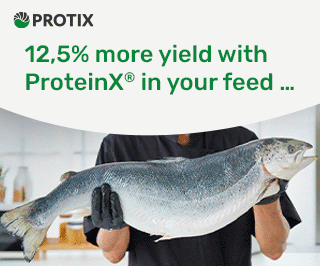The findings were unveiled following an unannounced visit to a Leroy facility in Norway in September.
Salmon farming giant Lerøy Seafood is under scrutiny after the Norwegian Food Safety Authority uncovered poor handling practices at one of its facilities off the island of Hitra, Norway.
As part of a surprise inspection on Sep. 21, officials claim to have discovered dead and dying salmon being processed for human consumption at a Lerøy facility, resulting in an immediate ban on the further harvest and sale of the fish, according to Norwegian broadcaster NRK.
The Food Safety Authority observed high mortality rates in the cages and cited the company for several breaches of food and aquaculture animal regulations.
The citations relate to the handling of fish that had died before the harvest process, in breach of legal requirements for food safety and animal welfare.
Despite the findings, Lerøy and its service provider Seivik, which operated the vessel at the centre of the claims, reject the allegations of preparing sick fish for the market.
“We take a serious view of the deviations and the findings made during the Norwegian Food Safety Authority’s supervision at our service provider Seivik,” Lerøy Midt General Manager Harald Larssen told NRK.
Seivik General Manager Arne Bakke also rejected the allegations.
“The fish must be alive, we have no indication that fish that was delivered or sorted on board was dead,” he said.
With a turnover exceeding NOK 26 billion ($2.4 billion) and a profit of NOK 4 billion ($370 million), Lerøy Seafood Group is a major player in the global seafood market. It employs more than 6,000 people and its products are distribute across more than 80 countries.
The company is linked with Seistar, a joint venture equally owned by Lerøy and Br. Bakke. Seistar is instrumental in transporting smolt and fish designated for harvest and is engaged in the sorting, counting, and treatment against salmon lice of salmon and trout. Seistar employs the shipping company Selvik for these operations.



